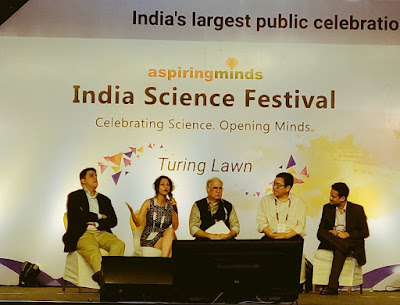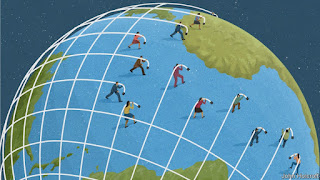Keynote for the Digital Inclusion Policy Conference in London
What a wonderful and diverse audience for this keynote for the Digital Inclusion Policy conference held in London by the University of Liverpool. It emerged from some very critical and timely questions such as - What type of skills do people need to ‘be digital’? Do different people from different ages and abilities need different types of skills and training? And how can we foresee what skills will be needed for future work? The conference brought together researchers, civic activists, government think-tanks, policy practitioners, tech entrepreneurs and more from very different contexts and countries which made these conversations more challenging and rewarding.
My keynote was about Inclusion with the emergence of the Next Billion Users and what that means for equity and justice at a global level in this data-driven age.
The basis of my talk was as follows:
The mobile phone has been a global game-changer. There are more cellphones than people in China. India is the biggest market for WhatsApp, and Brazil ranks second after the United States as the top Twitter user group worldwide. By 2020, majority of data will come from the Global South. With cheap phones and a vast array of affordable data plans, the next billion users will emerge from outside the West. They are, for the most part, young, low-income but upwardly mobile and extremely enthusiastic users of social media. While this is good news for digital divide policy-makers and practitioners, this talk grapples with how this digital inclusion confronts current concerns on user commodification and tracking in this data-driven society. Is inclusion intrinsically empowering? How do we negotiate the optimism of these new users towards these life changing digital interventions with the growing pessimism of ‘surveillance capitalism’ that signals a dystopic future? Can media literacy, digital activism, and free will serve as a counter force to the bleak visions of ‘algorithmic oppression’? By unpacking some of these questions through the perspective of these next billion users, we may be able to move forward in our joint aspirations for the common good.




Comments
Post a Comment